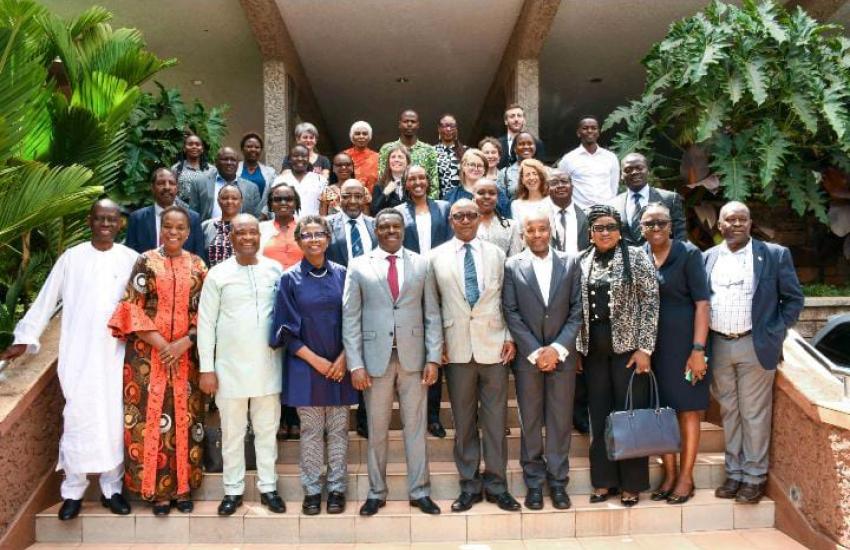IDS and King’s College London convene meeting on Developing a Healthcare Workforce for Africa
The Institute for Development Studies and King’s College London convened a meeting with researchers, scholars, and policymakers on Developing a Healthcare Workforce for Africa at Sarova Panafric Hotel on 8-9th February 2024.
Present were H.E Muthomi Njuki, the Chair of the Council of Governors, officials from the Ministry of Health, IDS staff led by Prof. Karuti Kanyinga, Prof. Fumni Olonisakin, Vice President (International, Engagement & Service) at King’s College London, and scholars from Ghana and Nigeria.
Prof. Kanyinga acknowledged that there have been remarkable changes in healthcare delivery after the devolution of government services. There have, however, been gaps for example in training the healthcare workforce in developing countries.
Prof. Fumni stated that there is a need for an ecosystem whereby the training of the healthcare workforce in Africa is relevant, and for collaboration to respond to continental challenges.
Prof. CF Otieno posed the question of how workforce training will fit into the matrix of the healthcare challenges. “How is the training going to improve access to healthcare?”
Dr. Martin Sirengo from the Ministry of Health was keen to note that the levels 1-4 health facilities are crucial to access to healthcare in the country. It is, therefore, sustainable to train the healthcare workforce for better healthcare service delivery.
Dr. Kigen from the Ministry of Health's contribution was on the pillars of Universal Health Coverage. He said the Human Resource Advisory Council which addresses human healthcare issues after the Kericho Declaration has sought to facilitate effective training of health workers, retaining and hiring after internship, and better primary care networks.
H.E Muthomi Njuki noted that there has been an improvement in access to healthcare services, however, there is a shortage. This has been due to the migration of health workers to developed countries like Germany and Canada.
The experience from Ghana is that there has been innovation in medical education. There has been engagement with national and local governments on healthcare policy. International cooperation has enabled learning, innovation, and technology transfer. The experience from the University of Abuja was that academic and clinical staff have engaged in health policy formulation which includes mental health.
At the University of Ibadan, there has been a project on the use of AI and online medical consultation to improve access to healthcare for example the use of Gestational Blood Sugar Tracker for pregnant mothers.
At the end of the meeting, the representatives were tasked with the role of looking at how to establish a course on health workers’ training. The course will have an interdisciplinary collaboration approach.


